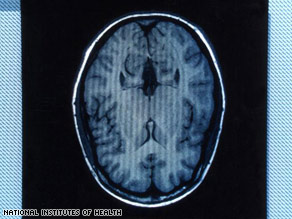Stories as Engines for Social Evolution
Posted in Education, Entertainment, Review, Science, Writing on January 20th, 2009 Last week New Scientist had an article on How Novels Help Drive Social Evolution. The article reports on a study by Jonathan Gottschall and co-author Joseph Carroll at the University of Missouri, St Louis, about how “Darwin’s theories of evolution apply to literature” (I’m not putting in a link to the study since you have to pay to view it). Gottschall and Carroll with John Johnson, an evolutionary psychologist at Pennsylvania State University in DuBois, asked 500 people to fill in a questionnaire about 200 classic Victorian novels. The believe:
Last week New Scientist had an article on How Novels Help Drive Social Evolution. The article reports on a study by Jonathan Gottschall and co-author Joseph Carroll at the University of Missouri, St Louis, about how “Darwin’s theories of evolution apply to literature” (I’m not putting in a link to the study since you have to pay to view it). Gottschall and Carroll with John Johnson, an evolutionary psychologist at Pennsylvania State University in DuBois, asked 500 people to fill in a questionnaire about 200 classic Victorian novels. The believe:
Boehm and Carroll believe novels have the same effect as the cautionary tales told in older societies. “Just as hunter-gatherers talk of cheating and bullying as a way of staying keyed to the goal that the bad guys must not win, novels key us to the same issues,” says Boehm. “They have a function that continues to contribute to the quality and structure of group life.”
“Maybe storytelling – from TV to folk tales – actually serves some specific evolutionary function,” says Gottschall. “They’re not just by-products of evolutionary adaptation.”
This reminded me that back in March of 2006, I’d reviewed A Short History of Myth by Karen Armstrong. The premise was that people need stories or myths as much as they needed food and water (my words not hers). Basically, people have always told stories. We gathered round the fire and told of hunts, of battles, of the gods, of how good got rewarded and bad was punished. If you haven’t read this work, you really should. It doesn’t retell the fairy stories or legends, it helps to place them in perspective according to their appearance along the time line of human social evolution.
In stories we pass on information from the older to the younger generation. Stories allow us to learn from our past and plan for our future. Children play to prepare them for the roles they will take on in life. In early days, they played at the hunt, imitating what they’d heard in the stories from their elders, the hunters of the tribe. They took in these lessons, tips, and warnings and as they grew they internalized these stories and used them in their lives. They observed the life around them and developed stories to make sense of what they saw.
Stories are essential to human culture. From stories we learn how to act. We learn about what is right and wrong and sometimes we learn that what seems right or wrong is actually the opposite. We learn to beware Greeks bearing gifts. Many of the sayings we use daily conversation are based in stories from our past.
We’ve mostly moved from a mostly oral to a mostly written tradition as few people are drawn to the position of Bard or Storyteller. At one time they brought news from one community to another and passed on the accumulated knowledge they’d learned in their travels in the form of stories. Beyond that, our lives are but stories for the next generations, which I feel Shakespeare touched on when he wrote:
All the world’s a stage,
And all the men and women merely players:
They have their exits and their entrances;
And one man in his time plays many parts,
While you can still occasionally find storytellers, we mostly read books. The Bards/Storyteller of our time are authors — those whose fiction fulfills our need for stories. From books I learned much of what I know of life in different social classes than the one in which I was born, or life in other cultures, or other planets. I learned the manners and modes of behavior; how to survive outside my comfort zone of what I know. I also learned that these people, no matter which century they lived in, had the same fears, desires, wishes, dreams and hopes that I do. I learned that I was not alone. I learned that others had gone before me and that I could learn from their successes and their mistakes.
Stories are cautionary, informative, educational, and entertaining. Yes, “storytelling – from TV to folk tales – actually serves some specific evolutionary function” and any avid reader could have told these researchers about the importance of stories in our lives. However, it’s nice to have our beliefs ratified by science.


